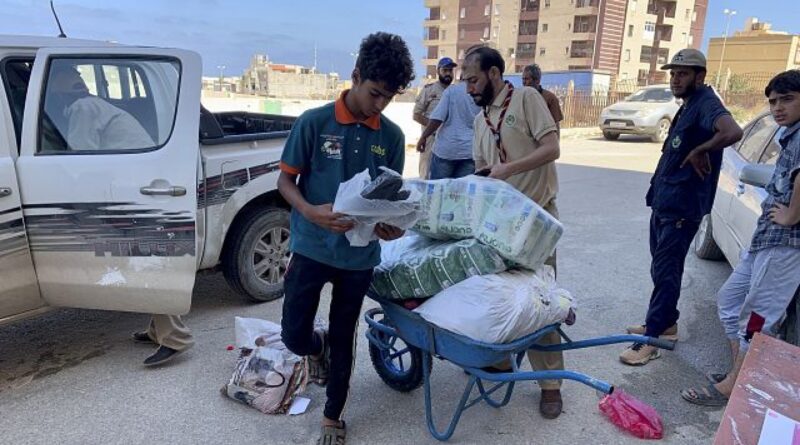Floods in eastern Libya displaced over 16,000 children
The deadly floods that devasted eastern Libya on September 10 displaced over 16,000 children UNICEF warned on Thursday (Sep. 28).
Many more are affected due to lack of essential services, such as health and safe water supply, the UN’s children agency added.
Storm Daniel swept across cities including Derna, Albayda, Soussa, Al-Marj, Shahat, Taknis, Battah, Tolmeita, Bersis, Tokra and Al-Abyar.
While the number of children among the casualties is still unconfirmed, UNICEF fears hundreds perished in the disaster, given that children account for about 40 per cent of the population.
In the hit region, out of 117 impacted schools, 4 were destroyed and 80 partially damaged. This means children risk further disruption to their learning.
Some of the displaced families are hosted in schools.
Waterborne illnesses are a growing concern due to water supply issues, significant damage to water sources and sewer networks, and the risk of contamination of the ground water. In Derna alone, 50 per cent of water systems are estimated to have been damaged.
“UNICEF has been working with authorities and partners since the beginning of the tragedy to respond to the urgent needs of children and families in the affected areas,” said Adele Khodr, UNICEF Regional Director in the Middle East and North Africa, who has just returned from a visit to Al Bayda and Derna.
Khodr also sounded the alarm on the psychological burden children bear.
UNICEF is revising its humanitarian response appeal of US$6.5 million to integrate initial recovery efforts with a focus on education, health and water. To date, the body has received about 25 per cent of these funds.
UNICEF has been supported the children in eastern Libya “since day two of the crisis.”
Sixty-five metric tonnes of relief supplies have been delivered to affected areas, including medical supplies for 50,000 people for three months, family hygiene kits for almost 17,000 people, 500 children’s winter clothing sets, 200 school-in-a-box kits and 32,000 water purification tablets.
UNICEF has also dispatched mobile child protection and psychosocial support teams to help children cope with the emotional toll of the disaster.

